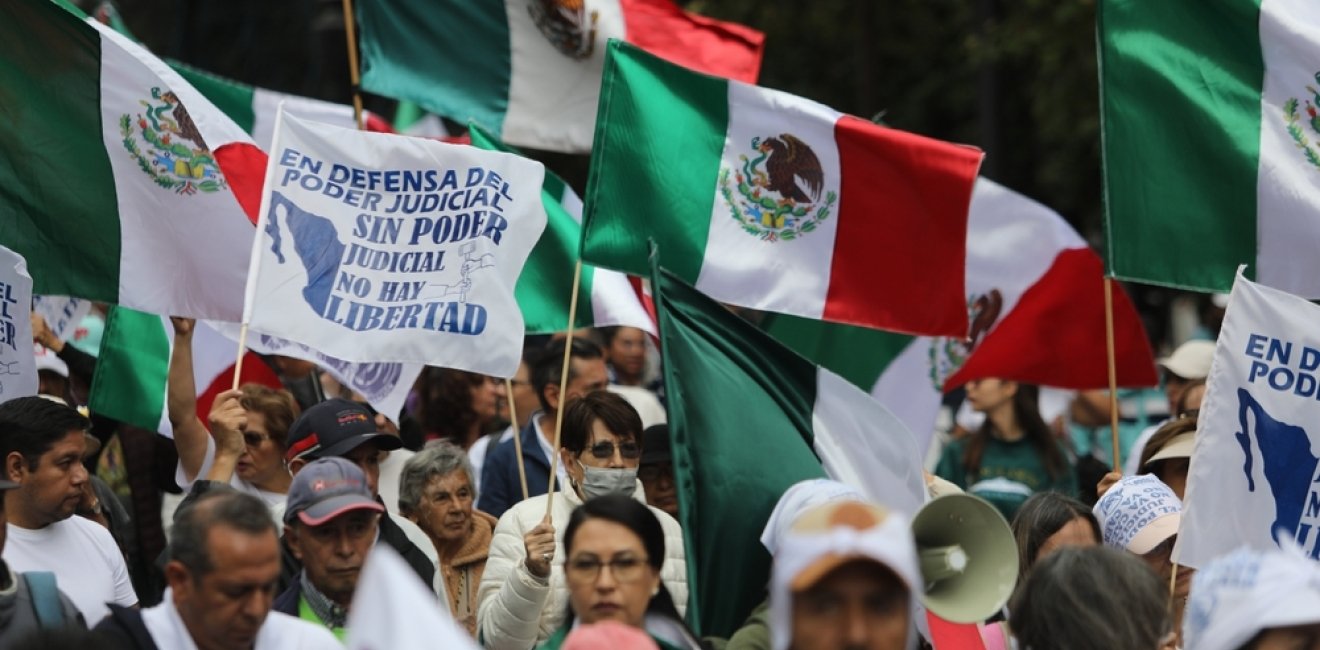
If we were to inquire about the form of government in a country and were to receive an answer indicating that there is a separation of powers but that the Legislative power is not independent—given that the Executive controls two-thirds of it—and that the Judicial power is selected by both the Executive and Legislative powers, it would be evident that this is not a democracy.
The recent constitutional reform to the judicial system proposed by the President and approved with undue haste without even considering the opposition's arguments or the citizenry clearly indicates the deterioration of the last pillars of democracy in Mexico. Such a scenario violates the Constitution of the United Mexican States, which, in Article 49, establishes that the supreme power is to be divided between the Executive, Legislative, and Judicial powers and that no individual or entity shall exercise two or more of these.
Mexico has never been a fully-fledged democracy. However, in the 1990s, significant steps were taken to advance the country towards a more modern democratic system. Considering the recent approval of the judicial reform, it is imperative to consider the insights Steven Levitsky and Daniel Ziblatt provided in their renowned book, "How Democracies Die." They assert that the demise of democracies in the 21st century is not primarily driven by coups d'étator revolutions. Instead, they argue that the erosion is gradual and that we should be concerned when we observe specific indications. In their view, the process of weakening a democracy begins when there is a rejection of democratic norms expressed in words or actions. This can manifest as a disregard for electoral processes and the constitution. It is strengthened when opponents are delegitimized, violence is tolerated or promoted, and the civil liberties of opponents are restricted. Finally, it is consumed by controlling or eliminating institutions and autonomous bodies.
However, achieving these objectives is contingent upon a reliable team of individuals who are not inclined to challenge the regime and are prepared to safeguard its interests above all else, even at the expense of their interests, which, in theory, counterbalance the regime's power.
Six years ago, the feasibility of these developments was perceived, though not as an imminent possibility. Throughout Andrés Manuel López Obrador's tenure as Mexico's President, the foundations of democracy have been increasingly eroded. In the past 30 days, however, we have borne witness to the fragility of these foundations, and it is increasingly probable that, as it costs two centuries to construct them, it will take only a few days to demolish them.
A profound judicial system reform was necessary in our imperfect democracy, where corruption, injustice, inefficiency, and nepotism were evident to all. However, the new reform does not address any of these issues. On the contrary, instead of professionalizing and demanding adequate profiles for the essential work judges perform, the reform considerably lowers the selectivity requirements of its members. To become a judge, the approved reform demands that one graduate from law school with a B- average and provide five letters of recommendation, even if candidates do not have judicial experience.
The selection of judges will be conducted in accordance with the standard procedures employed for the election of other public officials in Mexico. This will entail using physical ballots on which citizens will be required to cast their votes for approximately 1,400 positions among 10,000 candidates whom the Executive or Legislative powers have previously authorized. These positions include, among others, the roles of district judge or minister of the Supreme Court of Justice of the Nation (SCJN). Most voters will likely be unaware of the specific functions of these roles.
Another of the proposed changes that have caused most concern is the elimination of the Judiciary Council (CJF) and the creation in its place of a Court of Judicial Discipline, where at least three of its five members will be proposed: one by the Executive power, one by the Senate, and one by the judiciary. Such a Court will have the power to hear, investigate, and even sanction administrative responsibilities contrary to the principles of professionalism and objectivity, impartiality, and independence of the members of the Judicial power, whose verdicts will not admit any appeal whatsoever.
In summary, the reform, as approved, will cost the next president enormously in political and economic terms and undoubtedly set a bad precedent for democracy in Mexico.
Reforms in other important matters for the Republic continue these days. The President cannot and wants to save time to consolidate his fourth transformation (4T). He has already “lost” almost six years, and we still have six long days left.
Author




